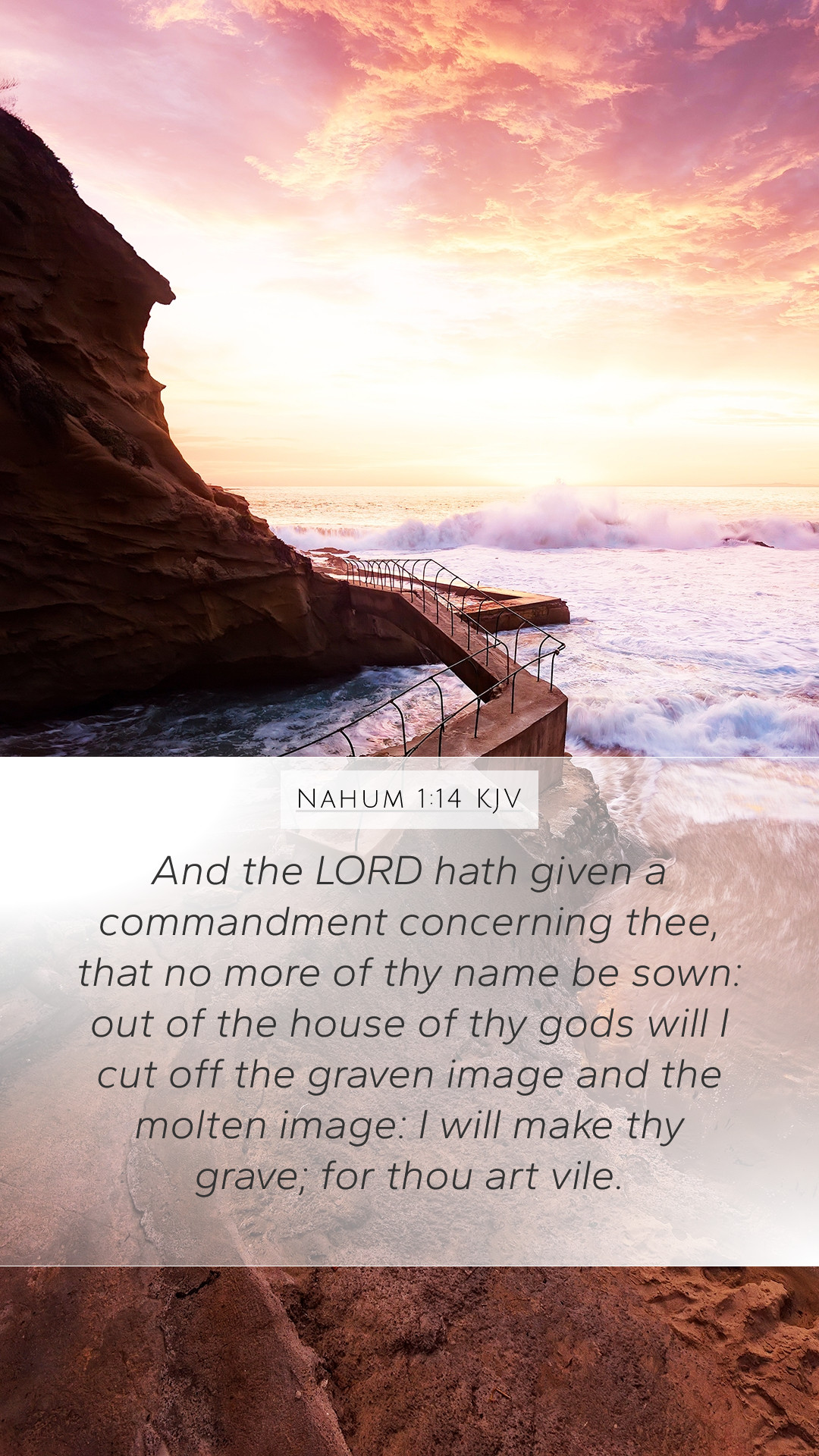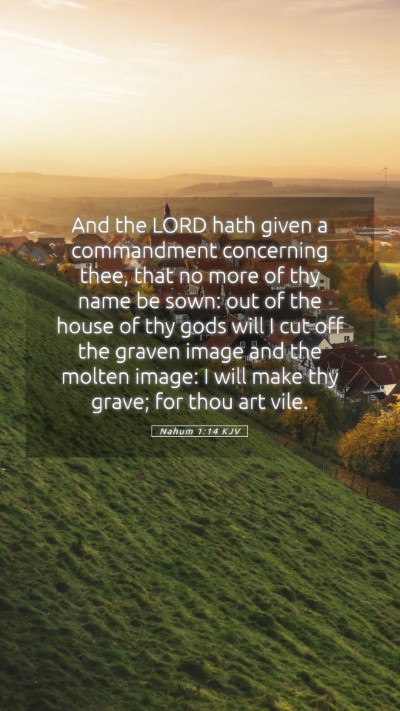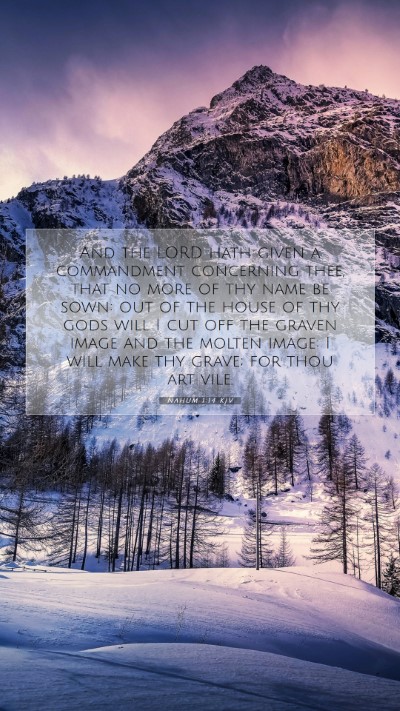Old Testament
Genesis Exodus Leviticus Numbers Deuteronomy Joshua Judges Ruth 1 Samuel 2 Samuel 1 Kings 2 Kings 1 Chronicles 2 Chronicles Ezra Nehemiah Esther Job Psalms Proverbs Ecclesiastes Song of Solomon Isaiah Jeremiah Lamentations Ezekiel Daniel Hosea Joel Amos Obadiah Jonah Micah Nahum Habakkuk Zephaniah Haggai Zechariah MalachiNahum 1:14 Meaning
What is the meaning of Nahum 1:14?
And the LORD hath given a commandment concerning thee, that no more of thy name be sown: out of the house of thy gods will I cut off the graven image and the molten image: I will make thy grave; for thou art vile.
Nahum 1:14 Bible Verse Meaning
Nahum 1:14 - Understanding the Verse
Nahum 1:14 states:
"And the Lord has given a command concerning you: Your name shall be perpetuated no longer. Out of the house of your gods I will cut off the carved image and the metal image; I will make your grave, for you are vile."
Meaning and Explanation
Nahum 1:14 serves as a proclamation of judgment against the Assyrian capital, Nineveh. This verse emphasizes the certainty of God’s judgment and the finality of His decrees regarding a nation that has reigned in wickedness.
Insights from Commentaries
- Matthew Henry:
Henry elucidates that this verse expresses divine command, highlighting that the Assyrians' time is up. The use of "perpetuated no longer" indicates that their legacy of evil will be extinguished, and the worship of their carved images will be abolished. The Almighty’s decree signifies that the wicked shall not endure.
- Albert Barnes:
Barnes notes that the cutting off of carved images signifies not just the destruction of idols but also an end to the worship practices associated with them. In this historical context, it provides a grim warning to those who oppose God. The phrase about making one’s grave pertains to their ultimate demise and dishonor.
- Adam Clarke:
Clarke comments on the vivid imagery presented in this verse, noting that it underscores the transience of idol worship. By stating that the Lord will cut off the carved and metal images, Clarke suggests that true judgment will come from the cessation of those false gods. This serves as a reminder of God’s power to render judgment against nations that oppose Him.
Historical Context
The book of Nahum was written during a time when the Assyrians were oppressive to Israel and have dominated the surrounding regions. Nahum, as a prophet, delivers a message not only of doom for Nineveh but also of hope for the oppressed nations. The historical backdrop sheds light on the importance of divine justice in the midst of suffering.
Cross References
- Habakkuk 2:18-19: Discusses the futility of idol worship.
- Isaiah 46:1-2: Speaks of the helplessness of gods made by human hands.
- Revelation 19:20: Final judgment against false prophets and idol-worship.
Practical Application
This verse urges us to reflect on our own lives and the idols we may subconsciously uphold. Whether it be materialism, power, or relationships, Nahum 1:14 serves as a divine reminder that all things not rooted in the worship of the true God are temporal and will ultimately face judgment.
Conclusion
Nahum 1:14 is a powerful proclamation about the fate of Nineveh and serves as a lesson in divine justice. It provides insights into God’s holiness and the inevitable fall of false idols. Understanding this verse involves not only recognizing its implications for ancient Israel but also applying its truths to modern life as believers seek to prioritize their worship and devotion to God over worldly distractions.
Key Takeaways
- God's Justice: God does not leave sin unpunished.
- The Futility of Idols: Any object of worship outside God is ultimately worthless.
- Hope for the Oppressed: Judgment against evil nations is also a promise of deliverance for God’s people.


